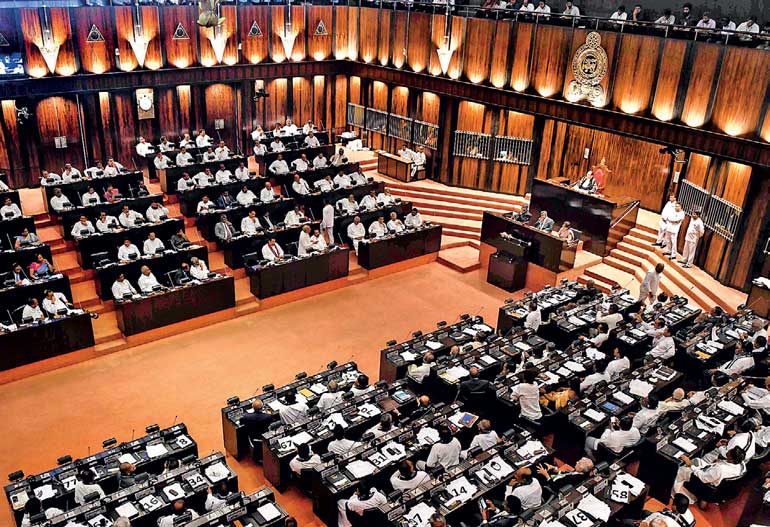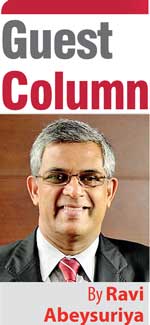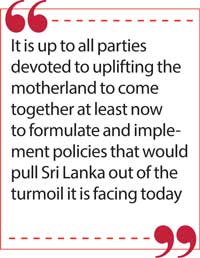Saturday Feb 14, 2026
Saturday Feb 14, 2026
Tuesday, 24 May 2022 01:30 - - {{hitsCtrl.values.hits}}

These precautions ought to have been taken soon after we won independence 74 years ago. If our leaders had the vision and the courage to implement them, Sri Lanka would have been a developed country today
An effective way to address the problem of the deterioration of the political culture is to end the appalling practice of nominating unsavoury characters to contest elections. The quality of the politicians that come forward are disgraceful and public has lost complete trust and confidence on them. 
The blame for this sorry state should go to all major political party leaders. It is estimated that the candidates who contested at the last Parliamentary Polls spent approximately Rs. 2.2 billion of their personal funds in total or Rs. 80 million each. Due to the colossal cost involved in contesting for elections, professionals that should lead the country are completely discouraged from coming forward.
The current system for monitoring the suitability of politicians that are nominated by political parties to be elected by the public to be Members of Parliament (MP) in Sri Lanka is regrettably inadequate. The existing criteria laid down in our constitution on nomination of candidates at Parliamentary Elections under articles 89 to 91 should be urgently revised with the 21st Amendment to the Constitution.
It is therefore imperative for Sri Lanka to introduce electoral reforms whereby an independent selection committee empowered by the Constitution for scrutinising candidates who intend on running for Parliament is established.
Such an independent selection committee should comprise of not more than nine persons appointed as per accepted criteria which should be reflected in the constitution, including but not limited to persons with high professional standing, integrity and untainted reputation in society acceptable to all political parties. 
This committee will then review, interview, and scrutinise the candidates nominated by all political parties to ensure that they meet the minimum standards applicable to Members of Parliament. In this process, the committee will be required to apply a Fit & Proper Test and require an Affidavit from all such candidates.
Furthermore, election campaigns of such candidates should be funded by their respective political party through a transparent mechanism and not by the candidates themselves.
The minimum standards required of a nominated candidate would demand that such persons shall be, (i) not more than 65 years of age, (ii) who have rendered distinguished public service, or (iii) who have brought honour to the country, or (iv) who have excelled themselves in the field of art, business, community service, culture, industry, labour movement, professions, sciences, sports, etc. The independent selection committee should ensure that the nominated candidates reflect a wide range of independent and non-partisan views and are suitably qualified.
The minimum standards may among other things include:
Enforcement process
The Constitution by way of reforms should provide for the establishment of a Parliamentary Disciplinary Council (PDC) to maintain and monitor robust compliance of the minimum standards required of a MP. Failure to adhere to such standards should render such MP’s right to remain in Parliament null and void subsequent to a disciplinary inquiry being carried out by the said PDC.
This Council shall consist of independent and non-partisan members (not MPs) who have a record of distinguished public service, who have excelled in areas such as arts, sciences, business, law, accounting, social service, or labour movements who shall be appointed by the Speaker on the recommendation of all political parties represented in Parliament.
The PDC should be made responsible for dealing with non-compliance and taking disciplinary action for the alleged violations of standards by MP. PDC should have rules of procedure to conduct disciplinary proceedings and decide on disciplinary investigations and review and recommend sanctions to recall MPs and changes to rules of procedure.
Conclusion
The above is by no means exhaustive to make electoral reforms but only some fresh and unorthodox thinking that those involved in constitutional reforms can expand and build on to restore citizens’ faith in the quality, integrity, and efficacy of MPs.
These precautions ought to have been taken soon after we won independence 74 years ago. If our leaders had the vision and the courage to implement them, Sri Lanka would have been a developed country today. Their failure has left us languishing as a third-world country, in the bottom end of economic management and corruption.
It is up to all parties devoted to uplifting the motherland to come together at least now to formulate and implement policies that would pull Sri Lanka out of the turmoil it is facing today.
The intended amendment to the Constitution hopefully will provide an opportunity to include the fundamental requirements of democratic governance, strong accountability, greater openness, and transparency to ensure that Members of Parliament represent citizens’ interests. It is an opening not to be missed to change our Constitution, to achieve a new political order that will soon put Sri Lanka as a model democracy in the world.
(The writer is a Member of the Disciplinary Review Council of the CFA Institute, USA and Advocacy Chair and Board Director of CFA Society Sri Lanka and functioned as a member of the Code of Conduct Review Committee (CoCRC) of the Central Bank of Sri Lanka 2020-2021 and can be reached at [email protected])